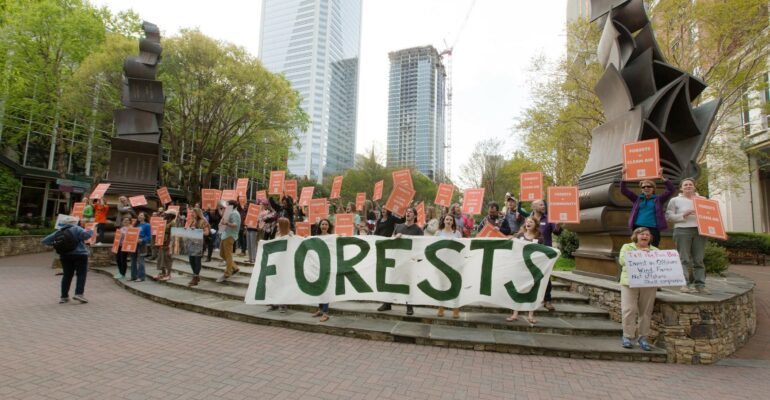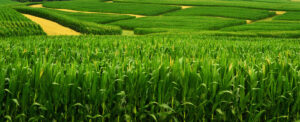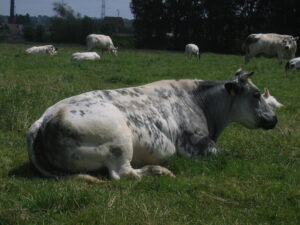Southerners Stand Against Growing Demand For EU Bioenergy
By Adam Colette, Program Director at Dogwood Alliance.
Over the past several months, the European Union has spent huge amounts of time debating the impacts the bioenergy industry. Parliamentarians have heard loud and clear from their colleagues, scientists and civil society that burning forests for fuel is bad for our climate, forests, and communities. Yet, many policy makers continue to hide behind the industry backed sustainability language and definitions that mask the real carbon, biodiversity, and community impacts of bioenergy. Which recently resulted in a new Renewable Energy Directive that failed to adequately limit the role of biomass.
Furthermore, in 2017 exports of wood pellets from the US South to Europe rose another 10%. While this increase was at a slower pace to previous years, this is not good news. Especially for coastal communities in the US South. The US South is on the front lines for facing the impacts of climate change. Sea level rise, increased storms and extreme weather, loss of freshwater resources are front and center in Southern US communities. These same communities are also ground zero for the wood pellet industry. An industry who is increasing logging rates and degradation of our natural forests (all for export to the EU) at the very moment when they need those forests standing.
Standing forests are our best defence against climate change. Letting our natural forests grow increases our ability to protect against flooding, purify water, sequester carbon, and maintain critical biodiversity.
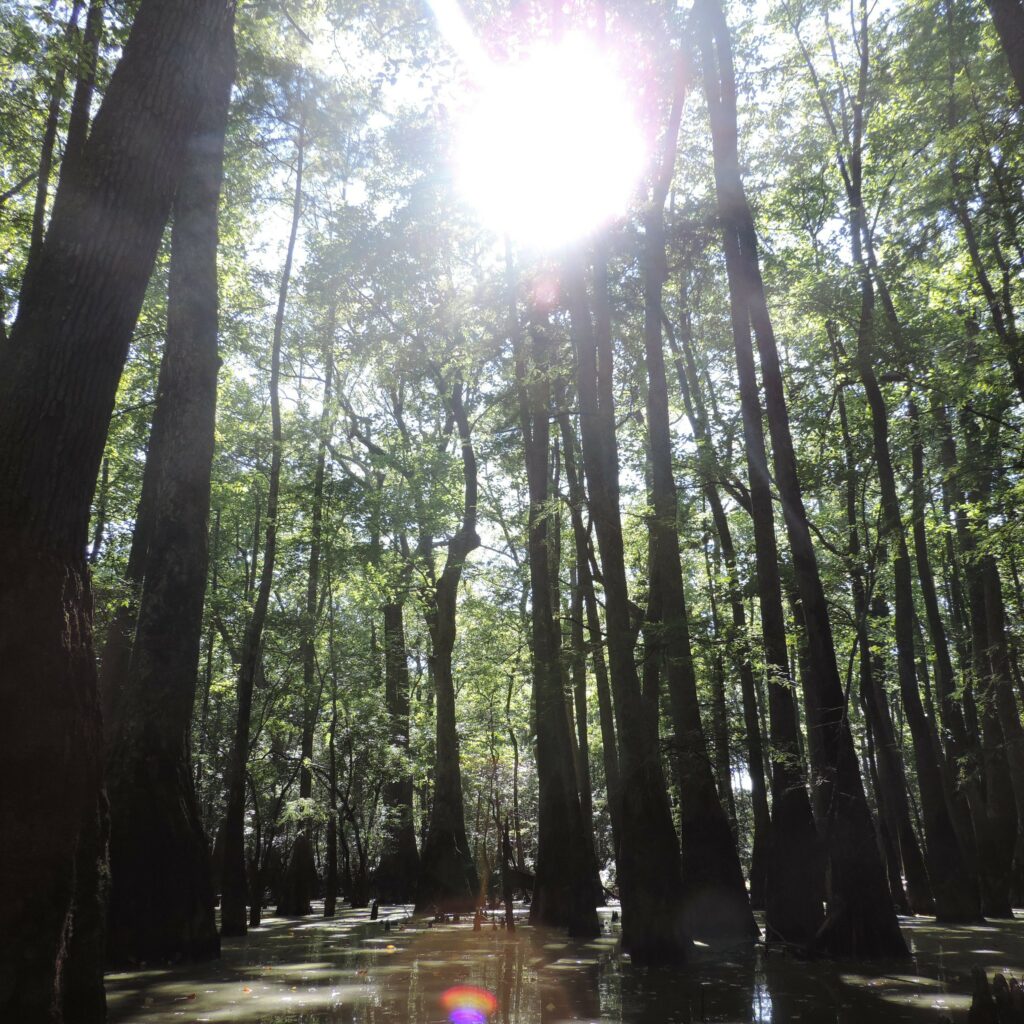
A beautiful natural hardwood forest in Virginia, USA.
As a Southerner, who cares deeply about my home region, it’s painful to watch as EU policy makers continue to make claims about the “sustainability” and “health” of our forestry industry and how much “low value” or “waste” wood we have to burn in their power stations. These positions are not only uncutting our ability to reduce carbon levels in the Earth’s atmosphere but at the same time limiting our local communities ability to utilize natural solutions to build climate resilience.
For example, bioenergy proponents continually make the claim that “forests of the US South are growing”, which makes for a great talking point but in reality hides massive degradation of our natural forest ecosystems. Consider this, if a natural forest in the US South is clearcut and either left or converted into an monoculture pine plantation that land is still counted as a forest! I’d challenge anyone to take a walk through a clearcut and claim that they just walked through a forest. We must recognize the huge difference between the sustainability of supply (bioenergy feedstocks) and the true sustainability of our standing forests and the benefits they provide.
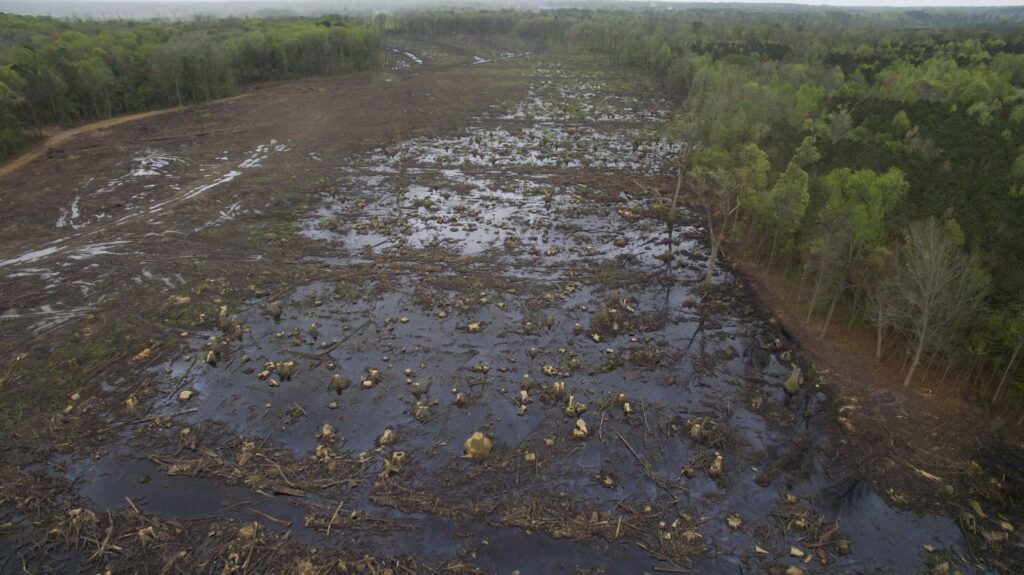
A clear-cut bottomland hardwood forest in North Carolina, which supplied Europe with wood pellets. This is still counted as “forest-land”.
When speaking about the impacts of bioenergy I often remind people that while this issue has numerous levels of complexity, at its core this issue is about climate change and the increasingly urgent need to address it. The growing movement here in the US South will continue to push back against the destructive bioenergy industry and the policy makers promoting it. We cannot sit idly by and watch as our forests are burned in the name of green energy, the future and livelihood of our community depend on this resistance.
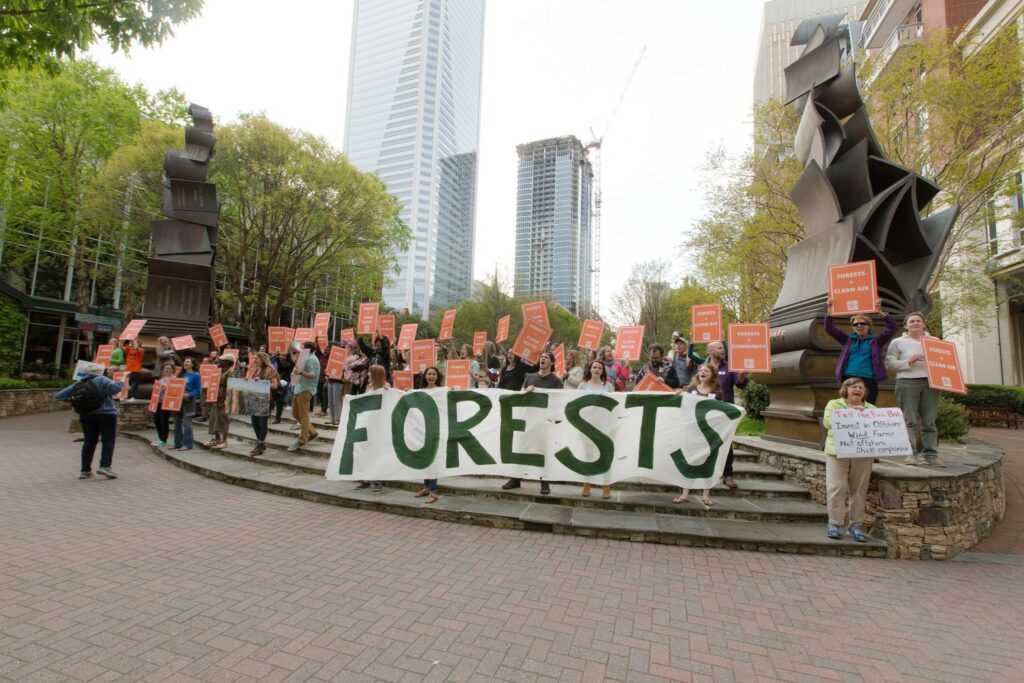
Hundreds rally in opposition at the International Bioenergy Conference in Charlotte, North Carolina.
Onward,
Adam Colette
Program Director – Dogwood Alliance
Banner and photos: © Dogwood Alliance

